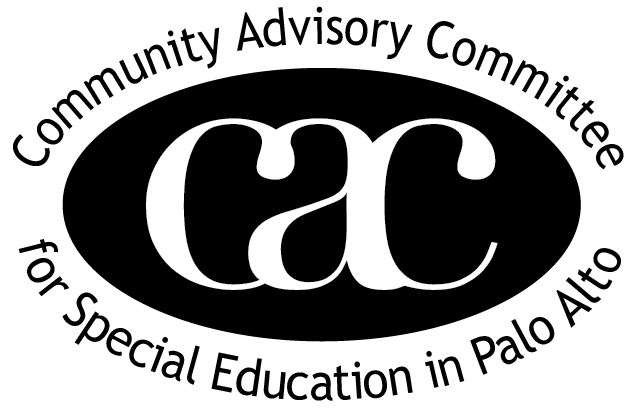CAC-Special Education Statement in response to the recent OCR decision and Resolution Agreement under the ADA and Section 504
Statement presented by Palo Alto CAC at PAUSD School Board meeting, February 12, 2013
As a community, we are committed to responding appropriately to harassment, including bullying.
The District and the community are partners in this effort. We are concerned about the welfare of all stakeholders, including our teachers and staff, and the students who may have committed a violation.
As a community, we support having in place and widely publicizing a policy prohibiting harassment and discrimination, with clear direction for staff and clear grievance procedures for students to raise harassment complaints, including contact information for designated Section 504/IEP coordinators.
District staff and administration must receive effective training so that they are able to identify and address harassment in an appropriate and prompt fashion.Our staff should be given the tools to be aware of and to follow clear P.A.U.S.D. procedures to address harassment.
We believe that the following should occur every time there is a complaint of harassment by a student with a 504 plan or IEP in place:
An immediate and appropriate action to investigate or otherwise determine what happened in a thorough and impartial fashion, including but not limited to interviewing targeted students, allegedly offending students, and witnesses, and maintaining written documentation of the investigation.
When an investigation reveals that harassment has occurred, a school should take immediate steps reasonably calculated to:
- End the harassment;
- Eliminate any hostile environment;
- Prevent harassment from recurring;
- Prevent retaliation against targeted students or complainants;
- Communicate with targeted students regarding steps taken to end harassment;
- Check in with targeted students to ensure that harassment has ceased.
To accomplish the above steps, a school may need to:
Provide monitors or additional adult supervision in areas where harassment occurs;
Determine consequences and services for harassers, including whether discipline or services is appropriate;
Limit interactions between harassers and targets, minimizing the burden on the targeted student; and
Provide the targeted student an additional opportunity to obtain a benefit that was denied.
It is important to expressly acknowledge the fact that most students do not report bullying. While staff is not responsible for the bullying itself, the staff should make an effort to be aware of these incidents for all students, especially students with special needs who are most vulnerable to harassment, including bullying.
An incident should be promptly reported to parents of the students involved.
Complainants should be free from fear of being ostracized or ridiculed.
Every incident should be monitored by a child’s case manager, as well as the designated person for receiving such complaints, and consideration given to the effect on the child’s special education program.
The District should make an effort to make the whole school community aware that bullying can include: (A) Placing a reasonable student in fear of harm to that student’s person or property, (B) Causing a reasonable student to experience a substantially detrimental effect on his or her physical or mental health, (C) Causing a reasonable student to experience substantial interference with his or her academic performance, (D) Causing a reasonable student to experience substantial interference with his or her ability to participate in or benefit from the services, activities, or privileges provided by a school.
We urge the District to consider adding an Ombudsperson or parent liaison, and to take advantage of the Department of Justice’s Community Relations Service, a free, confidential and voluntary mediation and conciliation service.
To minimize incidents of bullying, the District and community should make a concerted effort to help all children feel valued and to appreciate the value of others. Well supported cooperative classroom and school-wide activities foster mutual understanding and an appreciation for others and will make bullying less likely to occur.
